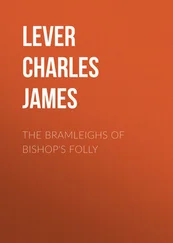Charles Lever - The Daltons; Or, Three Roads In Life. Volume I
Здесь есть возможность читать онлайн «Charles Lever - The Daltons; Or, Three Roads In Life. Volume I» — ознакомительный отрывок электронной книги совершенно бесплатно, а после прочтения отрывка купить полную версию. В некоторых случаях можно слушать аудио, скачать через торрент в формате fb2 и присутствует краткое содержание. Жанр: literature_19, foreign_antique, foreign_prose, на английском языке. Описание произведения, (предисловие) а так же отзывы посетителей доступны на портале библиотеки ЛибКат.
- Название:The Daltons; Or, Three Roads In Life. Volume I
- Автор:
- Жанр:
- Год:неизвестен
- ISBN:нет данных
- Рейтинг книги:4 / 5. Голосов: 1
-
Избранное:Добавить в избранное
- Отзывы:
-
Ваша оценка:
- 80
- 1
- 2
- 3
- 4
- 5
The Daltons; Or, Three Roads In Life. Volume I: краткое содержание, описание и аннотация
Предлагаем к чтению аннотацию, описание, краткое содержание или предисловие (зависит от того, что написал сам автор книги «The Daltons; Or, Three Roads In Life. Volume I»). Если вы не нашли необходимую информацию о книге — напишите в комментариях, мы постараемся отыскать её.
The Daltons; Or, Three Roads In Life. Volume I — читать онлайн ознакомительный отрывок
Ниже представлен текст книги, разбитый по страницам. Система сохранения места последней прочитанной страницы, позволяет с удобством читать онлайн бесплатно книгу «The Daltons; Or, Three Roads In Life. Volume I», без необходимости каждый раз заново искать на чём Вы остановились. Поставьте закладку, и сможете в любой момент перейти на страницу, на которой закончили чтение.
Интервал:
Закладка:
Charles James Lever
The Daltons; Or, Three Roads In Life. Volume I (of II)
PREFACE
IF the original conception of this tale was owing to the story of an old and valued schoolfellow who took service in Austria, and rose to rank and honors there, all the rest was purely fictitious. My friend had made a deep impression on my mind by his narratives of that strange life, wherein, in the very midst of our modern civilization, an old-world tradition still has its influence, making the army of to-day the veritable sons and descendants of those who grouped around the bivouac fires in Wallenstein’s camp. Of that more than Oriental submission that graduated deference to military rank that chivalrous devotion to the “Kaiser” whicli enter into the soldier heart of Austria, I have been unable to reproduce any but the very faintest outlines, and yet these were the traits which, pervaded all my friend’s stories and gave them character and distinctiveness.
Many of the other characters in this tale were drawn from the life, with such changes added and omitted features as might rescue them from any charge of personality. With all my care on this score, one or two have been believed to be recognizable; and if so I have only to hope that I have touched on peculiarities of disposition inoffensively, and only depicted such traits as may “point a moral,” without wounding the possessor.
The last portion of the story includes some scenes from the Italian campaign, which had just come to a close while I was writing. If a better experience of Italy than I then possessed might modify some of the opinions I entertained at that time, and induce me to form some conclusions at least at variance with those I then expressed, I still prefer to leave the whole unaltered, lest in changing I might injure the impression under which the fulness of my once conviction had impelled me to pronounce.
Writing these lines now, while men’s hearts are throbbing anxiously for the tidings any day may produce, and when the earth is already tremulous under the march of distant squadrons, I own that even the faint, weak picture of that struggle in this story appeals to myself with a more than common interest. I have no more to add than my grateful acknowledgments to such as still hold me in their favor, and to write myself their devoted servant,
CHARLES LEVER.
CHAPTER I. BADEN OUT OF SEASON
A THEATRE by daylight, a great historical picture in the process of cleaning, a ballet-dancer of a wet day hastening to rehearsal, the favorite for the Oaks dead-lame in a straw-yard, are scarcely more stripped of their legitimate illusions than is a fashionable watering-place on the approach of winter. The gay shops and stalls of flaunting wares are closed; the promenades, lately kept in trimmest order, are weed-grown and neglected; the “sear and yellow leaves” are fluttering and rustling along the alleys where “Beauty’s step was wont to tread.” Both music and fountains have ceased to play; the very statues are putting on great overcoats of snow, while the orange-trees file off like a sad funeral procession to hide themselves in dusky sheds till the coming spring.
You see as you look around you that nature has been as unreal as art itself, and that all the bright hues of foliage and flower, all the odors that floated from bed and parterre, all the rippling flow of stream and fountain, have been just as artistically devised, and as much “got up,” as the transparencies or the Tyrolese singers, the fireworks or the fancy fair, or any other of those ingenious “spectacles” which amuse the grown children of fashion. The few who yet linger seem to have undergone a strange transmutation.
The smiling landlord of the “Adler” we refer particularly to Germany as the very land of watering-places is a half-sulky, farmer-looking personage, busily engaged in storing up his Indian corn and his firewood and his forage, against the season of snows. The bland “croupier,” on whose impassive countenance no shade of fortune was able to mark even a passing emotion, is now seen higgling with a peasant for a sack of charcoal, in all the eagerness of avarice. The trim maiden, whose golden locks and soft blue eyes made the bouquets she sold seem fairer to look on, is a stout wench, whose uncouth fur cap and wooden shoes are the very antidotes to romance. All the transformations take the same sad colors. It is a pantomime read backwards.
Such was Baden-Baden in the November of 182-. Some weeks of bad and broken weather had scattered and dispersed all the gay company. The hotels and assembly-rooms were closed for the winter. The ball-room, which so lately was alight with a thousand tapers, was now barricaded like a jail. The very post-office, around which each morning an eager and pressing crowd used to gather, was shut up, one small aperture alone remaining, as if to show to what a fraction all correspondence had been reduced. The Hotel de Russie was the only house open in the little town; but although the door lay ajar, no busy throng of waiters, no lamps, invited the traveller to believe a hospitable reception might await him within. A very brief glance inside would soon have dispelled any such illusion, had it ever existed. The wide staircase, formerly lined with orange-trees and camellias, was stripped of all its bright foliage; the marble statues were removed; the great thermometer, whose crystal decorations had arrested many a passing look, was now encased within a wooden box, as if its tell-tale face might reveal unpleasant truths, if left exposed.
The spacious “Saal,” where some eighty guests assembled every day, was denuded of all its furniture, mirrors, and lustres; bronzes and pictures were gone, and nothing remained but a huge earthenware stove, within whose grating a faded nosegay left there in summer defied all speculations as to a fire.
In this comfortless chamber three persons now paraded with that quick step and brisk motion that bespeak a walk for warmth and exercise; for dismal as it was within doors, it was still preferable to the scene without, where a cold incessant rain was falling, that, on the hills around, took the form of snow. The last lingerers at a watering-place, like those who cling on to a wreck, have usually something peculiarly sad in their aspect. Unable, as it were, to brave the waves like strong swimmers, they hold on to the last with some vague hope of escape, and, like a shipwrecked crew, drawing closer to each other in adversity than in more prosperous times, they condescend now to acquaintance, and even intimacy, where, before, a mere nod of recognition was alone interchanged. Such were the three who now, buttoned up to the chin, and with hands deeply thrust into side-pockets, paced backwards and forwards, sometimes exchanging a few words, but in that broken and discursive fashion that showed that no tie of mutual taste or companionship had bound them together.
The youngest of the party was a small and very slightly made man of about five or six-and-twenty, whose face, voice, and figure were almost feminine, and, only for a very slight line of black moustache, might have warranted the suspicion of a disguise. His lacquered boots and spotless yellow gloves appeared somewhat out of season, as well as the very light textured coat which he wore; but Mr. Albert Jekyl had been accidentally detained at Baden, waiting for that cruel remittance which, whether the sin be that of agent or relative, is ever so slow of coming. That he bore the inconvenience admirably (and without the slightest show of impatience) it is but fair to confess; and whatever chagrin either the detention, the bad weather, or the solitude may have occasioned, no vestige of discontent appeared upon features where a look of practised courtesy, and a most bland smile, gave the predominant expression. “Who he was,” or, in other words, whence he came, of what family, with what fortune, pursuits, or expectations, we are not ashamed to confess our utter ignorance, seeing that it was shared by all those that tarried that season at Baden, with whom, however, he lived on terms of easy and familiar intercourse.
Читать дальшеИнтервал:
Закладка:
Похожие книги на «The Daltons; Or, Three Roads In Life. Volume I»
Представляем Вашему вниманию похожие книги на «The Daltons; Or, Three Roads In Life. Volume I» списком для выбора. Мы отобрали схожую по названию и смыслу литературу в надежде предоставить читателям больше вариантов отыскать новые, интересные, ещё непрочитанные произведения.
Обсуждение, отзывы о книге «The Daltons; Or, Three Roads In Life. Volume I» и просто собственные мнения читателей. Оставьте ваши комментарии, напишите, что Вы думаете о произведении, его смысле или главных героях. Укажите что конкретно понравилось, а что нет, и почему Вы так считаете.












